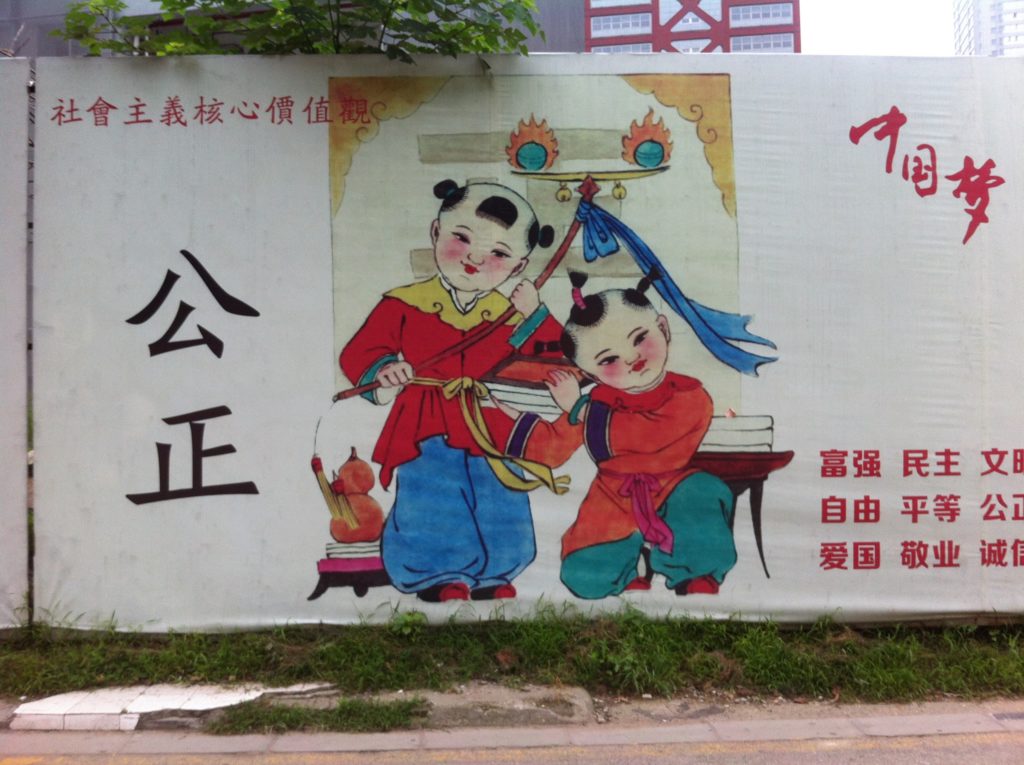Thirty years ago this month my first year in China came to an end. What I remember most is that I returned to the United States assured I knew less about China than when I first arrived. It was a year of unlearning. The ground truth of my experience in the country did not support the narratives about China I studied in school.
Every time I return to China the unlearning continues.
During the eight months between this visit and the last, my news and social media feeds were chock full of definitive statements from learned U.S. experts on the current political, economic and social and disposition of the People’s Republic. George Washington University Professor David Shambaugh, a seasoned China-watcher, asserted, “despotism is severely stressing China’s system and society—and bringing it closer to a breaking point.” He was referring to the rule of China’s supposed strongman, Communist Party Chairman Xi Jinping.
A more recently minted pair of U.S. China hands, Andrew Erickson of the Naval War College and Gabe Collins of the Wall Street Journal, responded to news of China’s recent stock market slump by writing, “China’s leadership has proved unwilling and unable to implement reforms sufficient to maintain current levels of economic growth amid gathering challenges.” They painted a dismal picture of an economy on the precipice of an accelerated slowdown that could “transmit” massive risk to the rest of the world.
Renowned U.S. sinologist Perry Link published an article in Foreign Affairs stating, “being Chinese in the twenty-first century means being materialistic, nationalist, and aggressive.” He lamented, “Whereas Chinese students of a generation ago admired Western life and values so much that they built a statue, Goddess of Democracy, on Tiananmen Square, today, after decades of government-sponsored anti-Western indoctrination, many see the West more as a hostile rival than as a friend.”

“Justice”: One of a series of posters from a new propaganda campaign on the “core values of socialism” embodied in Chairman Xi’s “Chinese Dream”. The posters wrapped a construction site in downtown Nanjing in July 2015.
A good number of my Chinese friends and colleagues were demonstrating for democracy in the streets of various Chinese cities in the spring of 1989 and they still “admire Western life and values.” So do most of their children. They are a little less enamored of the United States than they were in the days of the Goddess of Democracy, but that is more a product of personal encounters with some of the uglier faces of U.S. political culture than communist party propaganda. An overwhelming majority of those Chinese admirers of the West, young and old, have strong positive impressions of Xi Jinping. Some believe, perhaps naively, that Xi is working to accumulate enough authority to follow in the footsteps of Nationalist Party President Chiang Ching-kuo, who ended decades of one-party rule in Taiwan in 1987, paving the way for the democratic transformation of the island’s politics. Others think Xi is more likely looking to Singapore as a model for the mainland’s political future.
Most of the Chinese I have come to know personally over the last three decades prospered and accumulated a modest measure of personal wealth. Those preparing to enter retirement do so with little fiscal anxiety. My parents left this planet relatively successful middle class Americans but were unable to leave behind anything more than a few sticks of furniture to their number one son. A Chinese gentleman of modest means I knew very well, a political officer in the air force who retired decades before he passed away last year, was able to leave each of his three sons the equivalent of thirty thousand U.S. dollars. His widow, an equally long-retired cultural worker, receives a government pension more than generous enough to meet her needs. I know many others like them from non-military walks of life. A few dabble in the stock market. No one seems particularly concerned about the recent bubble and its dramatic deflation. None of them are foolish enough to invest their savings in Chinese stocks. China’s young and volatile market is a sliver of China’s overall economy and its sudden rise and fall did not seem to make anywhere near as much of an impression on anyone I know in China as it did on the U.S. commentariat.
I hear the same sad complaints about the lack of freedom and the indignity of self-censorship from Chinese friends and colleagues in academia. The ideological reigns are tighter lately. But “despotism” seems a bit melodramatic. Lively debates about politics and policy are standard fare in China. You can hear them walking through a crowded train station or waiting in line at a busy Starbucks. People don’t seem to be looking over their shoulders for the thought police. Boutique bookstores are stocked with every imaginable work of foreign philosophy and literature. The web is heavily censored. This blog is often blocked. But anybody with the extra 10 minutes it takes to install a decent VPN can access anything they want, even pictures of “tank man” on Google.
As always, I find it next to impossible to reconcile the descriptions of China I encounter in the United States with the reality of my personal experience in the country. U.S. academics, journalists and government officials almost always speak about China in the abstract. They tend to have neat, clean interpretations of the issues of the day ready to deliver to students, the media and Congress.
My view of the country is intimate and messy. The best advice I can give to my fellow Americans after thirty years of China watching is that the more definitive a U.S expert assessment of China appears to be, the less likely it is to be true.
